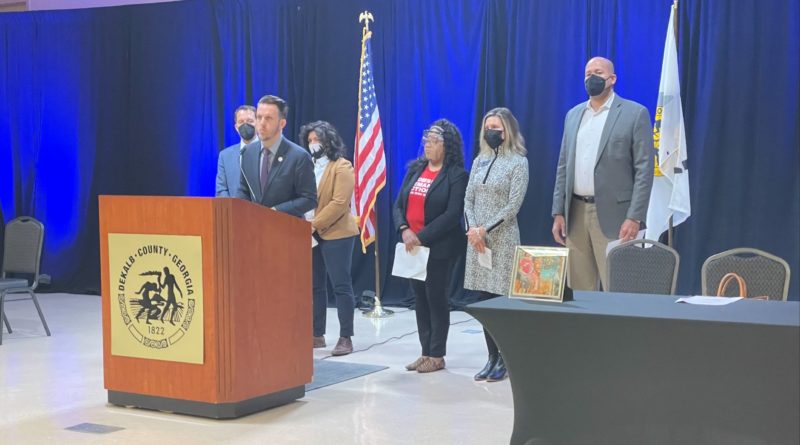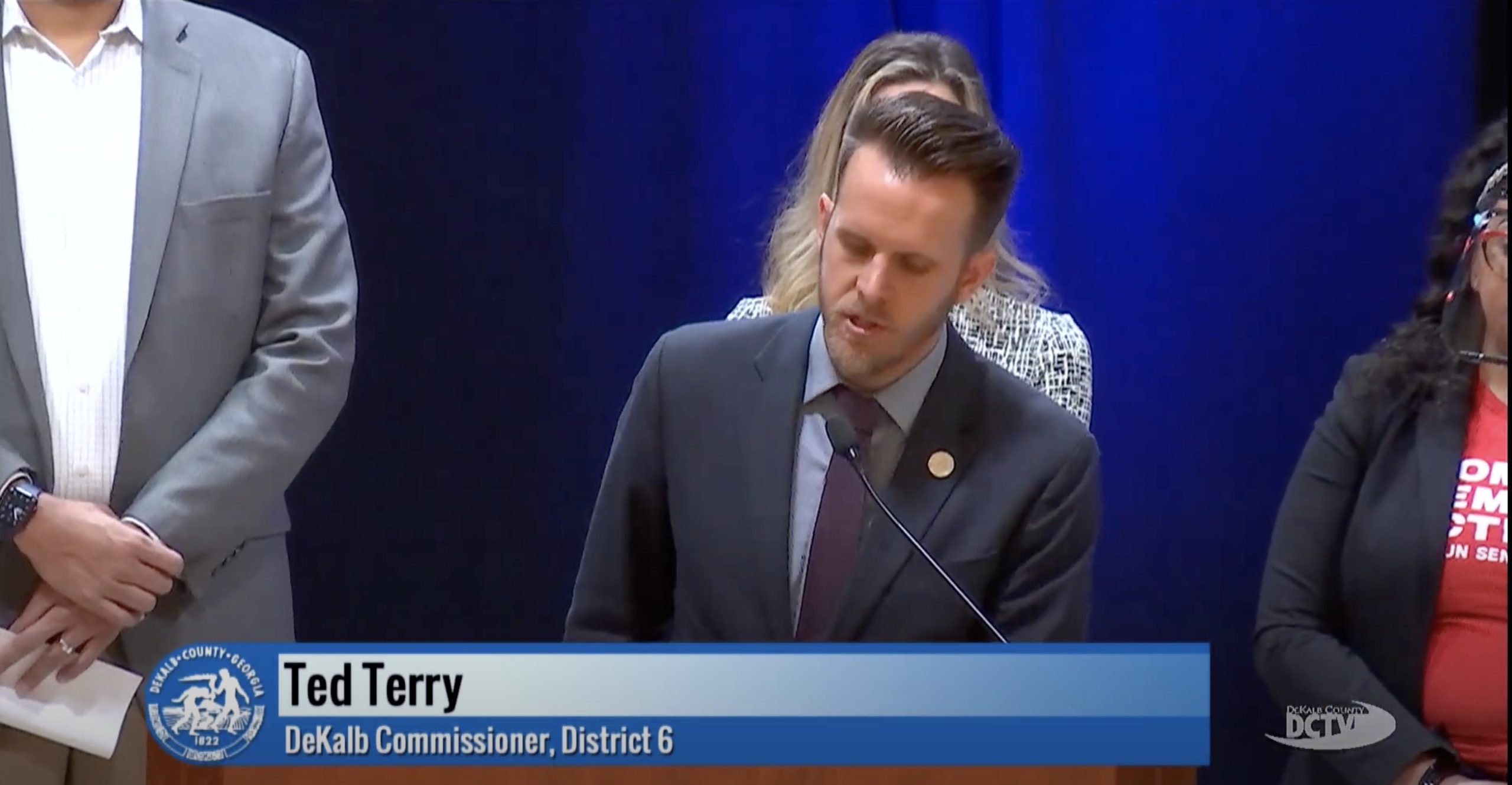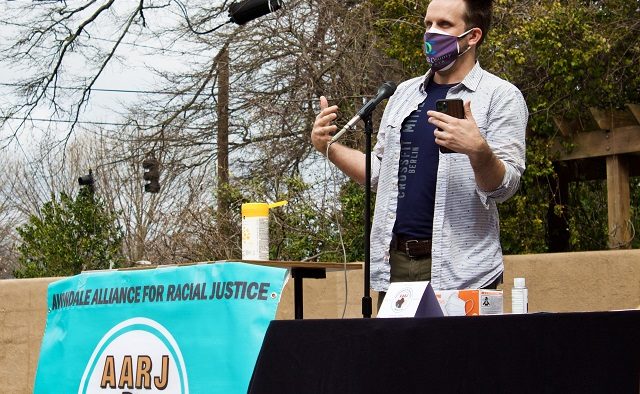Originally published in The Champion

Members of local school boards, city councils, county commissions, and other leaders and elected officials gathered in Decatur recently to discuss gun safety and what changes can be made at the local level to ensure guns are stored properly.
DeKalb County Commissioner Ted Terry was joined by State Senator Elena Parent, Atlanta Public School Board Chair Jason Esteves, Atlanta City Council President-Elect Doug Shipman, Atlanta City Council-Elect Liliana Bakhtiari, South Fulton Mayor-Elect Khalid Kamau and members of the Moms Demand Action organization to announce their push for legislation and resolutions at all levels of government to require safe storage of guns.
“The [recent] Oxford High School shooting in Oakland County, Michigan highlighted the increased urgency to pass common sense gun safety measures. Police involved in this case say that the shooter used a gun he got from his parent’s nightstand which was unsecured. This tragedy and countless others we’ve endured are avoidable and we can start here at the local level by passing secure gun storage policies immediately,” said Terry.
While Terry said an introductory draft of local legislation for the proper storage of guns has been shared with DeKalb County’s public safety committee for review, Esteves announced that Atlanta Public Schools (APS) passed a resolution that requires school board members and the superintendent to work with organizations, families, and the city of Atlanta to “communicate and educate stakeholders on the great responsibility and need of safe storage of guns.”
“While as a school board we can’t pass gun legislation, we can certainly do what we can to ensure our parents and community members know and understand their responsibilities as gun owners,” said Esteves.
Bakhtiari and Shipman, both recently elected in the Nov. 30 runoff, said voters expressed concerns with gun safety and the uptick in gun violence throughout metro-Atlanta during their time campaigning.
“During this election, on door-steps, in forums and in small groups, people talked a lot about wanting to do something new to address our public safety issues,” said Shipman. “They would ask me about how we could do something about the proliferation of guns and gun violence. That question came up very often. I am excited to see that across counties, cities and school districts, we’re trying to address what voters have demanded in this past election, which is ‘find solutions and find new ways of dealing with this problem.’”
Terry said he expects a discussion about the proposed safe gun storage legislation in DeKalb County to occur by the end of the year. He said he has spoken with county commissioners and local leaders in Columbus, Macon, Savannah, Chatham, Athens, Clayton, Cobb, Gwinett, Newton, and Rockdale counties, all of whom “were interested in taking action locally in the absence of action taken at the state and federal level.”
“There might be legal challenges ahead but that’s OK, […] and we’re prepared to have that debate, but today, we have local leaders here in metro-Atlanta and across Georgia standing up and taking action,” Terry said.
According to Moms Demand Action and Everytown, two nonprofits that advocate against gun violence and are working in collaboration with APS and DeKalb County officials, gun owners can make their homes and communities safer by storing their guns locked, unloaded, and separate from ammunition.
Learn more about proper gun storage, secure gun storage devices and more at www.everytown.org/solutions/responsible-gun-storage.




